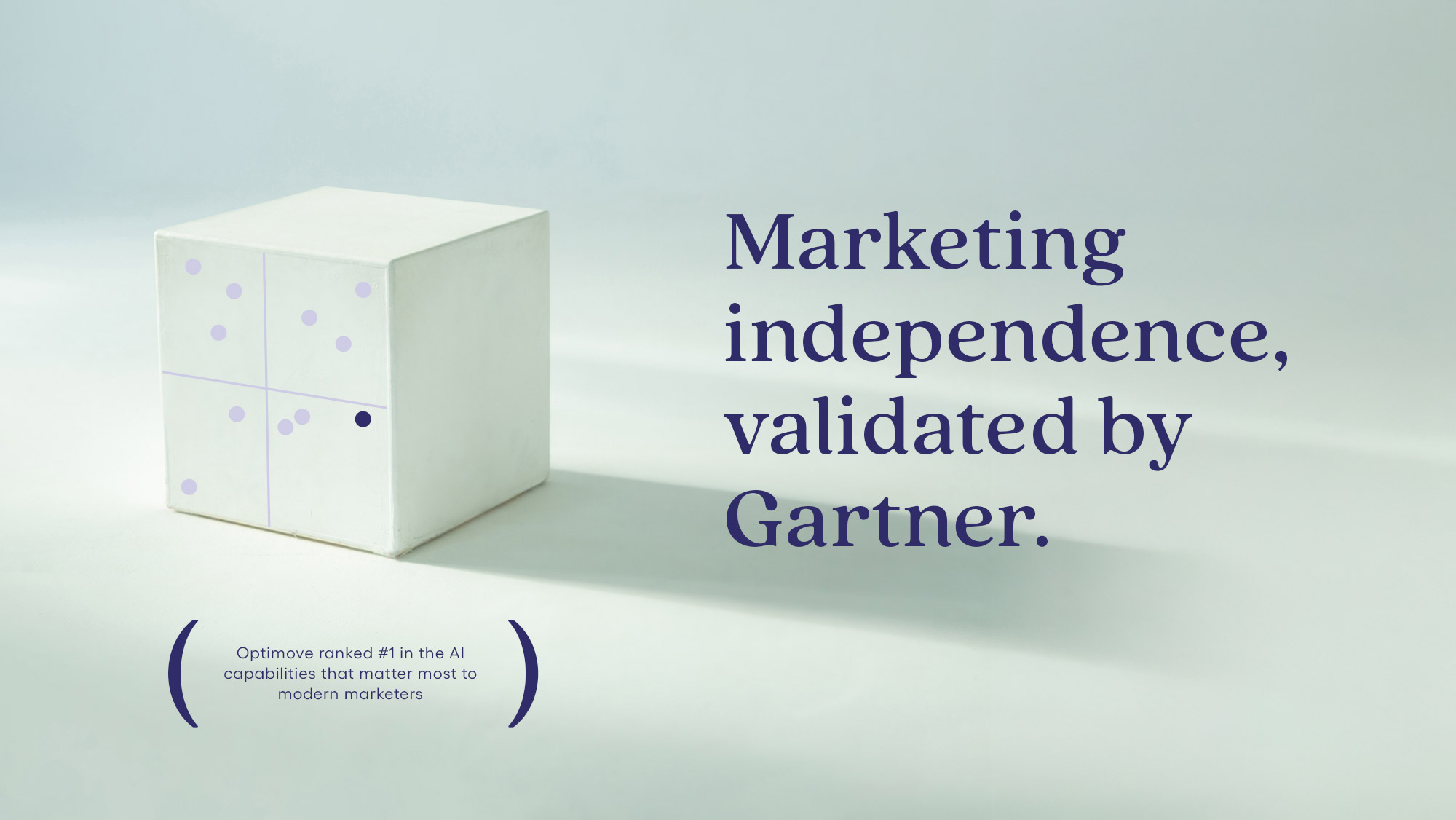
AI and the Retail Marketer’s Future
How AI transforms strategy and processes, driving the adoption of Positionless Marketing
Optimove Connect 2026: Join us in London on March 11–12 to master Positionless Marketing
Exclusive Forrester Report on AI in Marketing

People with high emotional intelligence (EQ) are well liked, show strong performance and are generally more successful. They are emphatic and have good social skills: they show an awareness of the feelings of others and manifest this awareness in their words and actions. They can find common ground with a wide range of people and nurture relationships that go beyond just friendliness and the ability to get along.
They achieve this by noticing and analyzing subtle nuances: gestures, voice intonation, word choice, facial expressions – stated and implied codes that transpire between people – and adjusting their behavior accordingly. The jury is still out on the quintessential quantification method of EQ, but we don’t really need a test: we recognize people with high EQ as the good listeners, the ones that nurture in us the feeling that we are understood, and who react to us seamlessly. In his research of EQ, psychologist Daniel Kahneman of Nobel Prize fame found that people prefer to do business with a person they like and trust rather than someone they don’t know, even if that person is offering a better product at a lower price.
Imagine if brands could do that!
“The aim of marketing is to know and understand the customer so well that the product or service fits him and sells itself,” said management guru Peter Drucker (back in 1974!). The central principle of marketing is that knowing a customer better helps you to offer products and services they actually want. Understanding the context of a customer has always been a part of that, but recently the amount of contextual information available to marketers has sky-rocketed.
Personalization is a first step – we know that because automated emails now use our first name more often than our own parents. The ability to call customers by name and display weather-appropriate apparel, for instance, is a good start for making a connection. But if you were able to look at a picture of all of your customers on a TV screen, personalization would convey a terribly crude, low definition picture, flattened into nine or twelve pixels. You would target the green pixel differently than the yellow one, but that’s about the amount of differentiation you could base your customer engagement on.
If you’re still viewing your customers through that pixelated paradigm, you are missing out on the next wave in the customer revolution, empowering brands to be actually sensitive to their customers and display emotional intelligence and personality in the way they communicate.
The key to achieving a higher definition is in the data. Your customer data is technology’s equivalent to the gestures, tone, content and expressions that emotionally intelligent humans perceive. Your customers’ affinities, wants, needs and hesitations are all engrained in the data. But in order to create that emotional intelligent communication with your customers, you need the technology that will translate that data into behavioral patterns.
Cutting edge customer marketing technologies have the ability to deliver an increasingly granular and defined picture of your customers. As algorithms and data analytics become more sophisticated, those pixels on your TV screen become continuously smaller. Suddenly you notice that the blue pixel is actually not blue at all – it’s four pixels: green, grey, brown and light-blue. Now you can target increasingly defined groups of customers, each one with the message, content or offer that matches their preferences, place in the customer journey, touchpoint and state of mind. And as the technology keeps on collecting and parsing data, your customers’ picture is finally exhibited in its fully highly defined glory.
This is emotionally intelligent communication that gives successful businesses an edge over the competition by winning over the hearts of customers and helping them nurture the biggest asset they have – their customer base.
A variation of this post appeared in MarketingTechBlog on 2 February 2016.
Exclusive Forrester Report on AI in Marketing
In this proprietary Forrester report, learn how global marketers use AI and Positionless Marketing to streamline workflows and increase relevance.


Pini co-founded Optimove in 2012 and has led the company, as its CEO, since its inception. With two decades of experience in analytics-driven customer marketing, business consulting and sales, he is the driving force behind Optimove. His passion for innovative and empowering technologies is what keeps Optimove ahead of the curve. He holds an MSc in Industrial Engineering and Management from Tel Aviv University.


